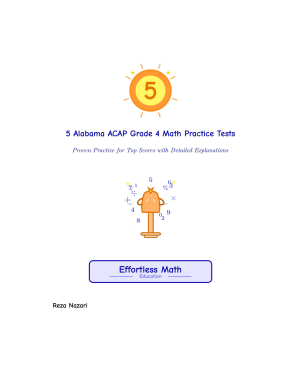Is Arbitrage Betting Legal in Australia?

Many Aussies enjoy placing the occasional bet, but some take it a step further by looking for ways to beat the system. One method that often comes up is arbitrage betting — a way of betting on all possible outcomes of a game using different bookmakers, so you always end up with a profit. It sounds smart — and it can be — but is it legal?
With more people gambling online through platforms like SpeedAU casino, strategies like this are getting more attention. Some players see it as clever, others think it’s risky. But what does the law actually say about it in Australia?
What Is Arbitrage Betting?
Arbitrage betting, often called “arb” betting, means placing bets on all possible outcomes of an event so you can’t lose. For example, if one bookmaker gives high odds for Team A to win and another gives high odds for Team B, you split your money between both bets. Whichever team wins, your total return covers both stakes and leaves you a small profit.
This method relies on finding differences in odds before they change. Punters use websites or apps to spot these gaps quickly. The profit margins are usually tiny, so you need to bet larger amounts or make many bets to see real gains.
Is Arbitrage Betting Legal in Australia?
Arbitrage betting isn’t illegal in Australia. If you’re betting with licensed bookmakers and placing your bets before the game starts, you’re on the right side of the law.
That said, the rules around betting depend on where you live. Each state has its own regulators, and there are national laws too — like the Interactive Gambling Act 2001. This law bans things like live online betting during a match, unless it’s over the phone. That makes some forms of arbitrage harder, but not illegal.
So as long as you’re using approved betting sites and sticking to pre-match bets, arbitrage betting is legal. It’s the way you place the bets — not the strategy itself — that matters.
How Do Australian Regulators View Arbitrage Betting?
Australian regulators don’t ban arbitrage betting, but they keep a close eye on how betting is done. The main concern isn’t the strategy — it’s whether rules are being followed and customers are being treated fairly.
At the national level, the Australian Communications and Media Authority (ACMA) looks after online gambling laws. Their focus is on blocking illegal websites, banning in-play online betting, and making sure operators are properly licensed. Arbitrage betting isn’t their target — unless it breaks other rules, like placing bets during a match online.
State and territory regulators — like Liquor & Gaming NSW or Victoria’s Gambling and Casino Control Commission — watch over licensed bookmakers. They don’t have any specific laws against arbitrage, but they do expect operators to follow responsible gambling rules, verify customer identities, and report anything suspicious.
So, while regulators don’t go after people just for using arbitrage, they do step in when things cross a line — like using fake accounts or trying to get around limits. They also warn punters to be careful with any service or website promising “guaranteed profits” through betting systems.
What Are the Risks of Arbitrage Betting?
At first glance, arbitrage betting seems like a clever way to stay ahead — no guesswork, just maths. But in practice, there are plenty of ways it can go wrong, even if you’re not breaking any laws. Here’s what you’re likely to face if you try it in Australia.
- Bookmakers don’t welcome arbitrage and often limit or block accounts once they notice consistent patterns. Some punters say they were cut down to $1 bets after just a few weeks of activity.
- Odds move fast. A few seconds’ delay can be enough for one side of the arbitrage to disappear, leaving you locked into a bet that no longer pays off.
- Small mistakes can be costly. Typing the wrong amount, losing internet connection mid-bet, or getting a rejection from the bookmaker can wipe out your margin or worse.
- Fake systems are everywhere. Some people sell “guaranteed profit” software or offer paid arbitrage advice. Scamwatch and the ACCC have warned that many of these are straight-up frauds.
- If you’re doing this often and seriously, the tax office might take an interest. Casual gamblers don’t pay tax, but regular profit-seeking might be seen as income. And using someone else’s ID to open more accounts? That’s a legal problem, not a strategy.
Real Cases and Incidents in Australia
Arbitrage betting might be legal, but it’s shown up in more than a few messy situations — especially when money, fake identities, or empty promises get involved.
- Back in the 2000s, several betting syndicates on the Gold Coast ran “investment clubs” built around sports arbitrage. They charged people thousands to join, promising steady returns. In reality, most of the money disappeared, and many members later found out no bets had been placed at all. The ACCC stepped in, calling it a clear scam.
- In 2024, reports came out about groups offering cash to people in exchange for their ID documents. The goal? Open dozens of new betting accounts to get around bookmaker limits. The punters behind it said they weren’t doing anything illegal, but regulators warned this could break anti-money laundering laws — especially if those accounts were being used to move large amounts of money without proper checks.
- Consumer agencies like Scamwatch are still sounding the alarm about dodgy websites that sell “risk-free” arbitrage systems. One scheme charged punters over $5,000 for access to a secret betting method — but it turned out to be smoke and mirrors. By the time people realised it didn’t work, the operators had vanished.
These examples show how quickly things can get out of hand. You might start with a legal strategy, but once fake accounts, hidden fees, or false promises get involved, you’re in a different story altogether.
Conclusion
Arbitrage betting isn’t banned in Australia. If you’re placing bets with licensed bookmakers and sticking to legal channels, you’re not breaking the rules. The strategy itself — betting on all outcomes to lock in a small profit — is allowed. But that doesn’t mean it’s simple or risk-free.
Bookmakers don’t like it. Many will limit your account or close it entirely if they think you’re gaming the system. Odds can change in seconds, mistakes are easy to make, and the margins are tiny. On top of that, scams are common — from fake betting systems to shady “syndicates” that promise guaranteed profits and deliver nothing.
If you’re just curious and want to try arbitrage casually, there’s nothing stopping you. Just be smart about where you bet, how much you trust, and what you risk. And if you’re getting deep into it — using multiple accounts, handling large sums, or thinking of it as a business — know that you’re stepping into murky legal and financial territory.
In short: legal? Yes. Safe? Not always. Easy? Definitely not.
Frequently Asked Questions
What is a growing pattern?
A growing pattern in math is a sequence that increases or changes based on a specific rule or formula. For instance, the sequence of numbers 2, 4, 8, 16 is a growing pattern where each number is doubled from the previous one. Understanding growing patterns helps students develop their reasoning and problem-solving skills, crucial for more advanced math concepts. It’s an engaging way to enhance their mathematical thinking and can be related to real-life scenarios, such as calculating interest or understanding population growth. You can explore more about patterns and sequences through our detailed resources on patterns and sequences.
What is the rule for a growing pattern?
The rule for a growing pattern in math identifies how numbers or objects increase in a sequence or arrangement. This rule can be a simple addition or multiplication factor that applies consistently throughout the sequence. For example, if each number in a pattern is the previous number plus two, the rule is “add 2.” Understanding these rules is essential for solving problems in algebra and helps develop logical thinking, much like strategizing in areas such as arbitrage betting where patterns and odds are analyzed for gains. For practice, you might find it beneficial to look at our resources on algebraic concepts which explain patterns and sequences in more detail.
How do you add and subtract mixed fractions?
To add or subtract mixed fractions, start by converting each mixed fraction into an improper fraction. This involves multiplying the whole number by the denominator and adding the numerator to the result, then placing it all over the original denominator. Once all mixed fractions are converted, ensure the fractions have a common denominator for easy addition or subtraction. After performing the arithmetic operation, if the result is an improper fraction, you might want to convert it back to a mixed fraction for simplicity. This process is similar to finding various outcomes in arbitrage betting where each scenario is considered and calculated to ensure a favorable result. For more on fraction operations, check out this guide on how to work with fractions.
Related to This Article
More math articles
- The History of Random Number Generation: From Dice to Quantum Chips
- Algebra 1 Fundamentals: A Guide for Students and Teachers
- How to Understand and Master Polygons and Angles
- How to Identify the Function from the Graph
- Distance Measurements
- The Great Math Tour: Exploring the World of Circle Graphs
- Overview of the AFOQT Mathematics Test
- 7th Grade New York State Assessments Math Worksheets: FREE & Printable
- Full-Length AFOQT Math Practice Test-Answers and Explanations
- Reveal the Secrets: “TSI Math for Beginners” Detailed Solution Manual




































What people say about "Is Arbitrage Betting Legal in Australia? - Effortless Math: We Help Students Learn to LOVE Mathematics"?
No one replied yet.